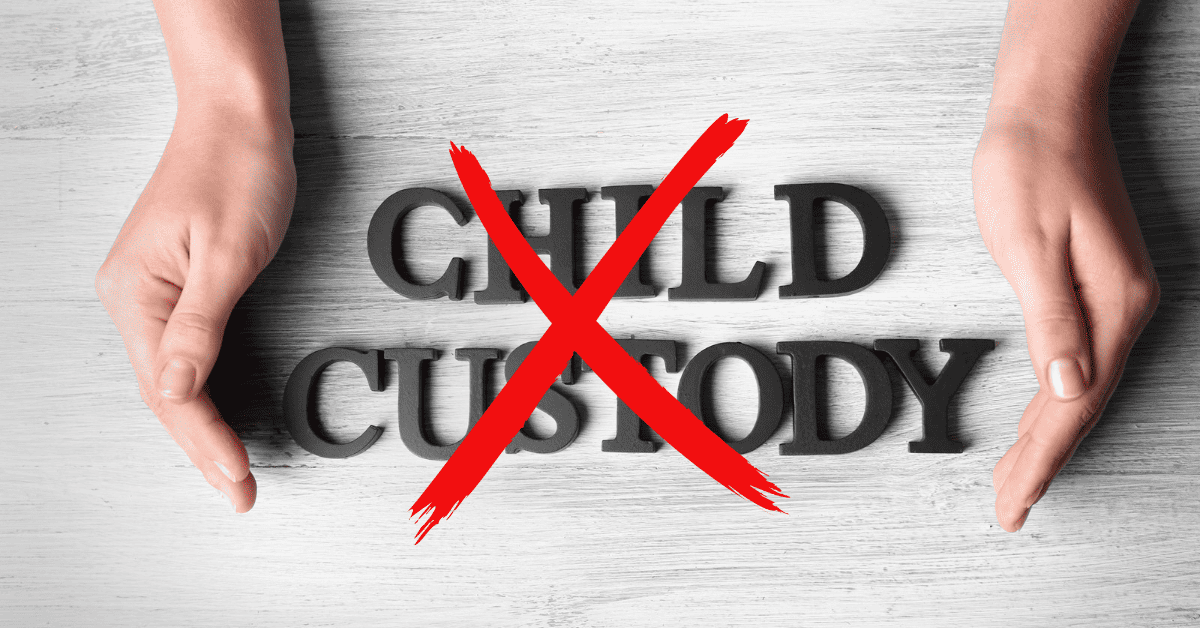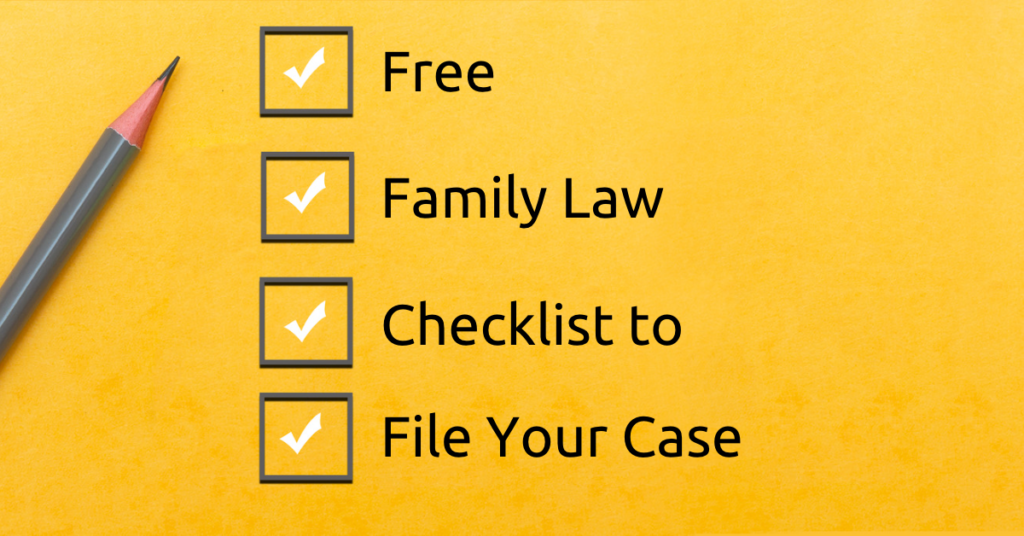I hope you enjoy reading this blog post.
If you want to represent yourself in family law, probate or estate planning court in Arkansas, check out one of our dedicated guides.

Today, we are tackling a very important and serious topic: the reasons why some parents may lose custody of their kids. This subject can be really tough to talk about, but it’s crucial to understand, whether you’re a parent yourself, or just someone who’s interested in learning more about how family law works.
Family courts all over the United States, including right here in Arkansas, are set up to make sure that every decision they make is in the best interests of the child. This means that, sometimes, a court has to make the hard decision to take custody away from a parent if it believes the child would be better off.
In this blog post, we will explain 10 different reasons that can lead to a parent losing custody. From problems like child neglect and abuse to issues with substance abuse and mental health, we’ll help you understand what these terms mean and why they can affect custody decisions.
We’re not here to scare anyone or pass judgment, but to share knowledge. After all, knowing about these issues can help us all create safer and healthier environments for our children. So, let’s dive in and get to the heart of the matter.
Info in this Blog
What are the 10 Main Reasons Parents Lose Custody of a Child in Arkansas?
Custody battles are complex and they vary from case to case, so what causes one parent to award custody or to lose custody might not apply in another situation. However, here are 10 general reasons why a parent might lose custody in Arkansas, or in any other state:
Child Abuse
This is one of the most serious reasons a parent can lose custody. If it’s proven that a parent has abused their child physically, emotionally, or sexually, they may lose their custody rights.
Child Neglect
Failing to provide for a child’s basic needs, including food, shelter, healthcare, and education, can also lead to loss of custody.
Substance Abuse
If a parent has a problem with drug or alcohol addiction, and it’s affecting their ability to care for their child, it may result in loss of custody.
Domestic Violence
If a parent is found to have committed acts of domestic violence, especially in the presence of the child, they can lose custody.
Violation of Court Orders
If a parent disobeys court orders, including those related to custody, visitation, or child support, they can lose their custody rights.
Unfit Living Conditions
If a parent is unable to provide a safe and suitable home environment for the child, they may lose custody.
Mental Health Issues
Serious mental health problems that prevent a parent from effectively caring for their child can result in loss of custody.
Inability to Provide Stability
Courts often consider the child’s need for stability and consistency. If a parent fails or cannot provide this, perhaps due to frequent moves, job changes, or instability in relationships, they could lose custody.
Relocation
If a parent wants to move a considerable distance away, and it would disrupt the child’s life (school, friends, other family members), the court may decide to change custody arrangements.
Being Unable to Co-Parent
Bad co-parenting may not be enough to cause a parent to lost custody. However, if “bad co-parenting” involves issues that bad for the child’s wellbeing, it will impact custody decisions. Even if it is not bad enough to cause a parent to lose custody, it could affect the amount of parenting time the parent gets.
Again, all these circumstances depend heavily on the specifics of the case, the court’s judgment, and often involve input from multiple professionals such as child psychologists, social workers, and attorneys.
How Can a Parent Lose Custody?

Typically, one parent with will file with the family court a motion to change child custody. That will have state the reasons and to change the child custody and what child custody award they would like from the court.
What are some reasons that people ask to change custody of a child: physical abuse, child’s health, emotional abuse, physical or sexual abuse, psychological abuse, child’s welfare, physical child abuse, serious neglect, physical violence, and any other issues that impacts the children’s welfare.
What can kinds of child custody decision can you ask the judge for: legal and physical custody, sole physical custody, sole legal custody, joint legal custody, sole custody, mother loses custody, or father losing custody.
What does it mean to lose custody of a child?
“Losing custody” might sound like a scary term. So, let’s break it down in a way that’s easier to understand. When people talk about “custody” of a child, they’re usually talking about who gets to make big decisions for that child (like where they go to school, or what kind of medical care they get), and also who the child lives with. Usually, these are the child’s parents.
In the state of Arkansas, just like in many other parts of the United States, the main goal of the court system is to do what’s best for the child. So, when a court decides who gets custody, it’s looking at a whole bunch of different things to figure out what would be best for the child’s well-being and happiness.
But what does it mean to “lose custody”? Well, sometimes, for different reasons, a court might decide that a child would be better off if one or both of their parents didn’t have custody anymore. This could mean that the child would live with the other parent, or maybe with another relative, or even with a foster family.
There are mainly two types of custody to lose. Physical Custody and Legal Custody. You can learn more about the different type of custody in Arkansas here.

Free Checklist to Make Sure you Start Your Case Correctly!
Is Disobeying Court Orders enough to Lose Custody of a Child?
It could be. Each child custody case decision is made on a case by case basis. Depending on the severity of the non-compliance with the custody order, it could lead to losing custody.
When someone willfully disobeys a child custody order, you can file a motion for contempt of court order against them. If you want to change the custody order, you also need to file motion to modify child custody.
Disobeying a court order will lead to changing the custody arrangement in a custody case when the actions affect the other parents custody of child. If person is interfering with the custody arrangement, causing parental alienation, or taking other actions that affect parenting time fo the other parent, it can cause one parent to lose the custody battle.
Is Bad Co-Parenting Enough for a Parent to Lose Custody?
Bad co-parenting in itself may not be enough to cause a parent to lose custody. The courts make their decision based on the “best interests of the child” standard, and simply disagreeing or not getting along well with the other parent usually isn’t sufficient cause for a change in custody.
However, if “bad co-parenting” involves behavior that is detrimental to the child’s wellbeing, it will impact custody decisions. This could include things like constantly undermining the other parent, refusing to comply with the agreed-upon parenting plan, denying visitation rights without proper cause, or involving the child in parental disputes.
How does parental alienation factor into losing custody of a child?
The court may also consider situations where one parent is consistently making it very difficult for the other parent to maintain a healthy relationship with the child. This is sometimes called “parental alienation,” and it can be a factor in custody determinations if it’s severe and demonstrably harming the child’s relationship with the other parent.
It’s important to remember that the specifics of custody cases can vary widely, and what applies in one case may not apply in another. If you’re involved in a custody dispute or concerned about co-parenting issues, it would be best to consult with a family law attorney who can provide guidance based on the details of your situation.
Do you want to represent yourself in court?

About Brandon
A licensed attorney with over 10 years of experience – I’ve noticed a lack of support for people who want to represent themselves in court.
So, I’ve created video guides that will help you gain back control of some of the least predictable situations you could experience in your lifetime.
Divorce Video Guides
- Intro to Family Law
- Requirements to File Divorce
- Drafting the Complaint
- Court Required Forms
- How, Where, and What to File
- How to Serve or Get a Waiver
- Drafting a Waiver
- Testimony Needed for A Divorce
- Affidavit of Financial Means
- Child Support Calculation
- Drafting the Divorce Decree
- Procedure in the Courtroom
- What to do with the Decree
Do you want to represent yourself in court?
Modifcation Video Guides
- Intro to Family Law
- Requirements to Modify Custody and Support
- Drafting the Motion to Modify
- Court Required Forms
- How, Where, and What to File
- How to Serve or Get a Waiver
- Drafting a Waiver
- Modification Filed Against You
- Child Support Calculation
- Order to Modify
- Procedure in the Courtroom
- What to do with the Decree